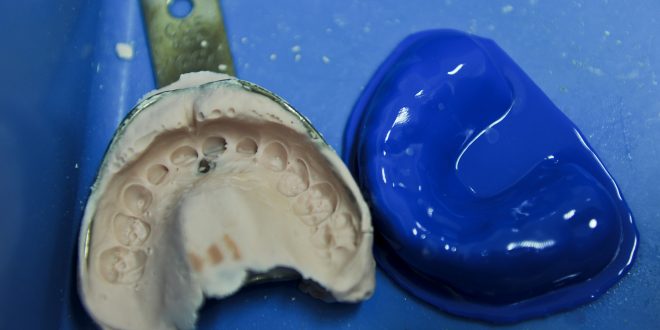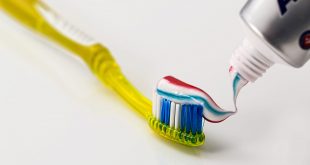By Edward Mims
As we saw in our article last week, this month is Dental Health Month. Therefore, we are going to continue on the topic of good oral health this week. This week’s focus is bruxism, more commonly known as teeth grinding. If you closely take a look at someone’s teeth, you can probably tell if someone grinds their teeth or not. A good indicator is usually noticing that the teeth are all the same length and appear “flat”. If you do grind your teeth, there is no reason to worry, as 70-95% of all people grind their teeth, and grinding is often inheritable. There are, however, steps that can be taken to control teeth grinding, as some of the symptoms that come from grinding can be uncomfortable or even painful.
Teeth grinding can arise because of stress and anxiety during the day, but most commonly it occurs during sleep. Common reasons of grinding are having an abnormal bite or having missing and crooked teeth. Some sleeping disorders such as sleep apnea can cause teeth grinding as well. Grinding teeth is very common and is a natural process, as some fetuses in utero have even been seen to have symptoms of bruxism as well.
Grinding teeth has many symptoms that can arise after many consecutive nights of it. For example, if you wake up with a dull headache or sore jaw, that is a tell-tale sign that there is grinding going on during your sleep. If you sleep in the same room as someone, the other person can probably hear the grinding at night, which is usually a rough squeaking noise. Teeth grinding can cause tenderness of the jaw, excessive wear on the teeth, chipped teeth, worn tooth enamel, increase tooth sensitivity, and a locked jaw. After extensive grinding, bridges, crowns, root canals, implants, or dentures may be required to replace the teeth stumps.
There are measures that can be taken to prevent teeth grinding. The easiest way to alleviate the symptoms is by setting up an appointment with a local dentist to fit a mouth guard. A mouth guard is a covering that is worn over the teeth that provide protection against grinding during sleep. If stress is the main issue, asking a doctor about ways to reduce stress such as exercising, receiving counseling, or getting a prescription may reduce teeth grinding. Caffeine is one substance that causes grinding, so avoiding sodas, chocolate, and coffee may benefit you. Chewing on objects such as pencils or pens, or even chewing gum may cause the mouth to get in the habit of grinding, so avoiding this action is recommended. Finally, clenching the teeth during the day will contribute to more grinding at night.
Teeth grinding is a problem that most people encounter, usually during sleep. There are easy measures to take to prevent grinding, and taking advantage of these tips will help your teeth to remain in pristine condition for a long time to come.
 Tempus Magazine By Students, For Students
Tempus Magazine By Students, For Students 



